Georgina Escobar [Originally in Spanish]:
This is a statement on behalf of Earth’s Citizens regarding the painful death of our humanity, for all her loving public.
It is through this medium that we wish to share with you a very great sorrow: the death of our humanity. Today, we say goodbye with great pain in our hearts. We must follow in her steps and move forward without her, without her physical presence, convinced that at no time in our lives we will we stop loving her and having her on our minds. Today, given the recent death, we must welcome the more-than-human consciousness, one that involves respect and recognition of the wisdom of our ancestors and of the trees themselves. Today, as humanity ceases to exist, we give life to porosity: a state of being that values decolonized thinking and from which priority is given to our connection with the more-than-human world in the same way that so much priority was given to the social in the case of the recently deceased.
On the other hand, we do not mourn but rather celebrate the recent death of the Malthusian Theory. We say goodbye to the problematic, fundamentally racist and sexist theory, and we welcome old and new ideas that welcome life, embrace courage, and promote strength in a manner consistent with all ideas and longings for a healthy and sustainable planet.
Like a seedbed, our gathering nourished a wide range of projects and perspectives, which will continue to sprout in many different places through the coming seasons.
What is porosity? This week, a diverse group of artists, academics, and activists came together to attempt to define and put into action an ideology that fundamentally decentralizes the human being and gives space to everything we call the more-than-human. With this in mind, we started by building an altar to the “dead.” Instead of honoring our human ancestors, however, the altar constituted objects that in some way or another allowed us to honor that more-than-human other. Seeds, water, corn, and mud, among many other things, were among the artifacts that made up our altar. And this is how we introduced ourselves to one another. Indeed, instead of introducing each other by centering “human-first” verbiage, in which we handle introductions as if we were talking business cards, we instead let ourselves be inspired by landscape and environmental recognition attached to each person. The idea was to aim for an introduction, for example, that sounded more like: “I am Georgina, I come from the desert, and am inspired by the Tarahumara land,” instead of “I’m a playwright, I am from Ciudad Juárez Chihuahua.” Although our landscape and territory introductions and recognition was not 100 percent activated, this was only a beginning in our thinking of porosity as a new awareness, in this case, starting from the way we introduced one another. It was in this way, through the construction of this altar, that we offered anecdotes about our relationships to the objects offered and placed on the altar.
When I was younger, I remember my grandmother had a penchant for turning our beloved adages and sayings on their head. One of her favorites was to turn “To each their own” into “To Own his Each.” With that in mind, and keeping this year’s Hemispheric Institute theme “The world upside down” close to heart, the group continued its work in a collective and decentralized way, where we each owned our “each,” per se, and where the idea of the expert and the inexpert was thrown out the window. Instead, each individual in our group led their own mini-group, with whom they shared their unique methodologies, ideas, and theories about performance and art in the midst of the climate crisis. Today, we present only one of the many exercises that we hope will allow us to continue our collective porosity towards a future where the absurd is used as a weapon in the face of denial of the climatological crisis.
For example, talking to friends in Mexico City, they told me how absurd it is that given how much it rains in the city, there is still a shortage of water. They agree that, yes, the first ten minutes of rain consist of toxic water, but what happens after that clears? It is absurd, to give yet another example, that in the same city a spring of water is constantly discovered under construction sites and swiftly diverted to the sewage because it’s the quick fix instead of using that water as potable water or for agronomic purposes. It is absurd in this city that sources of fresh water end up in the sewage and that, having a person whose degree is in Environmental Sciences at the head of their government, they recently reduced the budget to combat forest fires. These are just some specific, localized examples of the absurdity of climate crisis. We intend to continue to use the power of paradox to combat ignorance. And what germinated in this group was only the beginning of what I am sure will be a positive movement towards porosity. Thank you.
Una Chaudhuri [Originally in English]:
The Becoming Porous Working Group grew out of a couple of previous gatherings about theatre and climate change; one of these launched a group called Climate Lens, which developed a sort of manifesto we call the “Climate Lens Playbook,” which became a point of departure for our group. The principles articulated in the playbook reflect and support the kind of art that is more interested in understanding and unraveling the ideological roots of ecological crisis than in offering so-called solutions to the so-called problem.
The problem-solving model is just another turn of the screw of the idea of progress, complicit with so many histories of domination and dispossession. The world is not ours to solve. If we are lucky, it may once again become ours to belong to and to thrive in, but only if we learn to do so alongside the countless other species and forces who share it with us, the same species and forces that Eurocentric modernity has—over the past few centuries—redefined as either dead matter or consumable biomass.
The Becoming Porous group explored strategies for undoing the toxic ideology of anthropocentrism, the belief that one species stands apart and above all others and as such is entitled to use the world as a pool of resources to be tapped, drilled, stripped, extracted, molded, altered, and utterly remade to serve unlimited human desire. By contrast, a dis-anthropocentric, ecospheric ideology and art practice seeks to partner with the more-than-human world, and to do so in the full acknowledgment that our species has changed the planet in profound ways. There can be no Edenic “going back”—what we have to make now (as the title of a recent wonderful volume has it) are Arts of Living on a Damaged Planet.
Undoing anthropocentrism includes refusing its hierarchical and centralized systems, its disembodied and alienated epistemologies, and its fictions of authoritative intellectual mastery from a synoptic God’s eye view. Our working group tried to use systems of decentralized collectivity, embracing simultaneity, disjunctions, overlaps, contradictions, and synchronicity.
the ecological urgency of this moment asks us to get real intimate with our contradictions, to the liminalities, to the not-quite-there yets, to what brené brown calls “minding the gap”
Brontë Velez [Originally in English]:
in the spirit of unflattening our geographies, i’ve been collecting meanwhiles—
a meanwhile shared with me at a punk show in CDMX: “I’m embarrassed to share my meanwhile…while I was working in Nebraska to send money home to my family here in Mexico, I was working at a factory that produces rubber bullets for border patrol - who are using the bullets to shoot at Mexicans crossing the border into the US. They make the rubber bullets seem harmless but then i watched videos of how these rubber bullets could fracture a child’s skull and kill them or break someone’s arm. It was terrible because I felt like I was contributing to this somehow and I needed to make the money to send home to my family.”
the ecological urgency of this moment asks us to get real intimate with our contradictions, to the liminalities, to the not-quite-there yets, to what brené brown calls “minding the gap”—between where we are and where we want to be—meanwhileness for me is queer, meanwhileness for me is black, it allows us a space-time to illuminate the shadows of the otherwise, what hums alongside what we say is the “truth” and then demands the “truth” to become truer, sharper, to be willing to hold more, more simultaneity, more complexity, more beings than just ourselves, more thoughts than just what dead white men have to say about an earth they never learned to care for, the more-than-just-here—
the meanwhile is not about our ontology but what Derrida calls our hauntology—the ghosts interrupting and informing our beingness or our not being able to be—meanwhile is about the wake, about the afterlife of slavery, about honoring what we try and hush, what we’re afraid to witness is happening by way of each other, meanwhile is about welcoming what confronts us into communion, meanwhile asks us to surrender to tension and that which we thought separated us so we might be opened into our nearness with one another, our shared responsibility towards one another’s liberation, the possibility that our freedom might belong to one another.
we are excited to briefly share a week of our meanwhiles with you as an invitation and prompt to explore the meanwhile as an imaginative inquiry and methodology to support our becoming porous in response to climate chaos:
Eli Nixon [Originally in English]: Meanwhile, the Indonesian president hands over management of forests to nine Indigenous communities.
Brontë [English]: Meanwhile, we spoke about Earth on the fourth floor of a building.
Adilson Siqueira [Originally in Portuguese]: Meanwhile, Coca-Cola and Nestlé remain the largest producers of plastic packaging in the world.
Georgina [Spanish]: Meanwhile, the activist José Álvarez Flores was murdered on 10 June in Tabasco.
Eli [English]: Meanwhile, microbes worked their powers on our guts.
Brontë [English]: Meanwhile, we dropped into our bodies to expand our senses. This whole week, I need to vomit and diarrhea.
Adilson [Portuguese]: Meanwhile, in Brazil, the president thinks that climate change is something that crazy activists yell about.
Georgina [Spanish]: Meanwhile, we asked ourselves, what is nature: something under our feet, or something inside us?
Eli [English]: Meanwhile, we hugged trees and examined the line between corny and horny.
Brontë [English]: Meanwhile, Richard Schechner offered Malthusian theories for climate change. The ache of my ancestors bores in my womb.
Adilson [Portuguese]: Meanwhile, the world population of insects is rapidly declining.
Georgina [Spanish]: Meanwhile, the Tajamar was protected by a group of activists.
Eli [English]: Meanwhile, we lozenge on the reality of 450 million years of horseshoe crabs in conflicted conversation with modern use-a-cloth-bag notions of “hope”; may we weave these bags from the cotton we pull from our ears, enabling us to hear from our more-than-human kin.
Brontë [English]: Meanwhile yesterday while walking past the Aztec ruins and checking my phone, I learned that the Phoenix police threatened to shoot a pregnant Black woman after her four-year-old steals a doll from the store.
Adilson [Portuguese]: Meanwhile, in Brazil, former president Lula remains unjustly imprisoned, so I shout, “Lula Livre!”
Georgina [Spanish]: Meanwhile, we share 6 percent of our DNA with lettuce.
Una: Thank you all very much.
Georgina: Muchas gracias.
Adilson: Obrigado.
Co-convened by Una Chaudhuri, Elizabeth Doud, Robert Duffley, Georgina Escobar, and Adilson Siqueira, the working group included Hallie Abelman, Lawrence Bogad, Paul Bonin-Rodriguez, Susan Caraballo, Alexander Chêllet, Grisha Coleman, Maria Firmino-Castillo, Marco Guagnelli, Kiyo Gutiérrez, Sarah Kanouse, Julia Barbosa Landois, Rodrigo Malvar, Michele Minnick, Emma Morgan-Thorp, Eli Nixon, Joshi Radin, Kathleen Schaag, Mady Schutzman, Brontë Velez, and Jacinta Yelland.


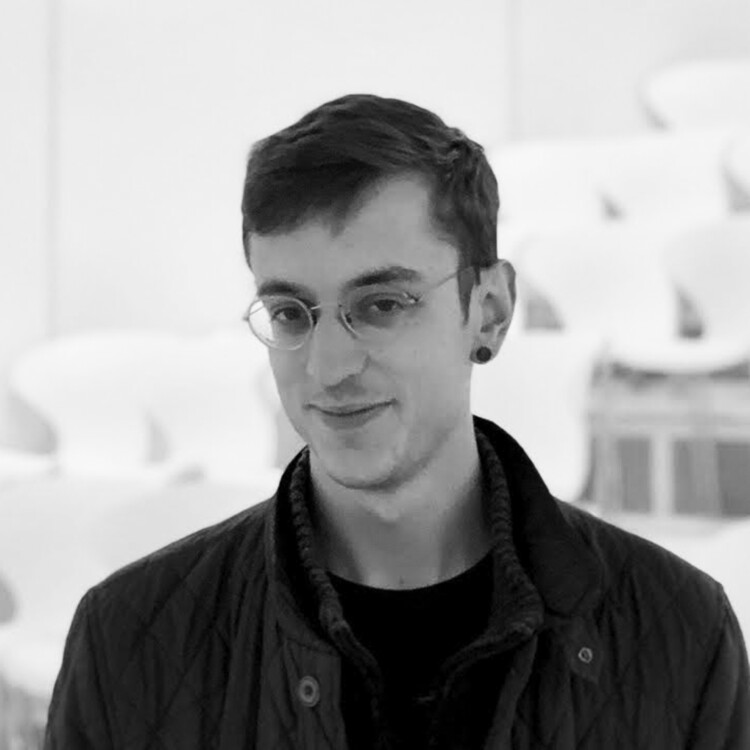

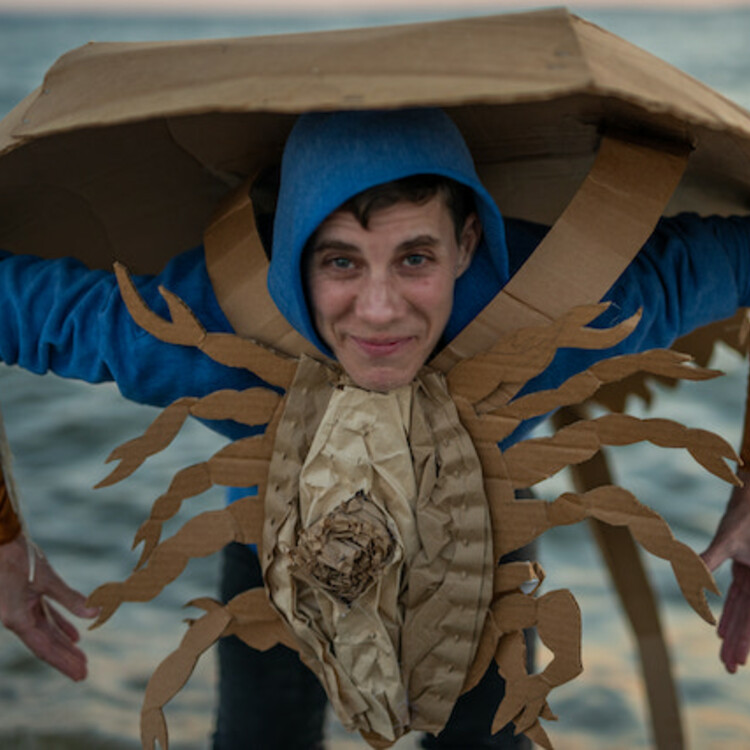

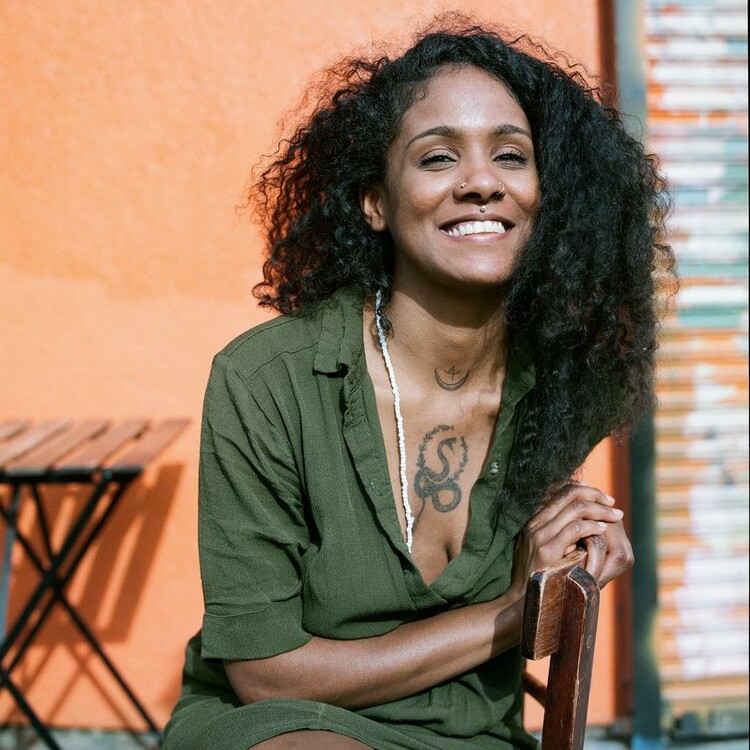
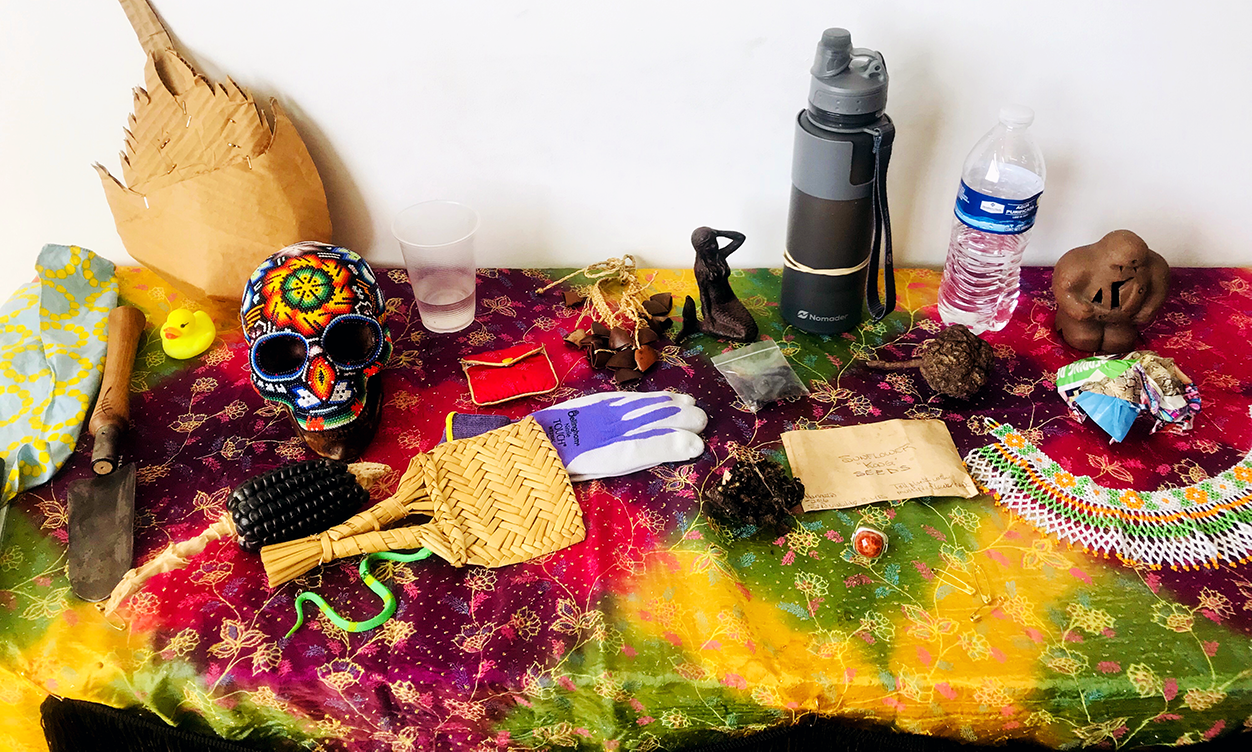
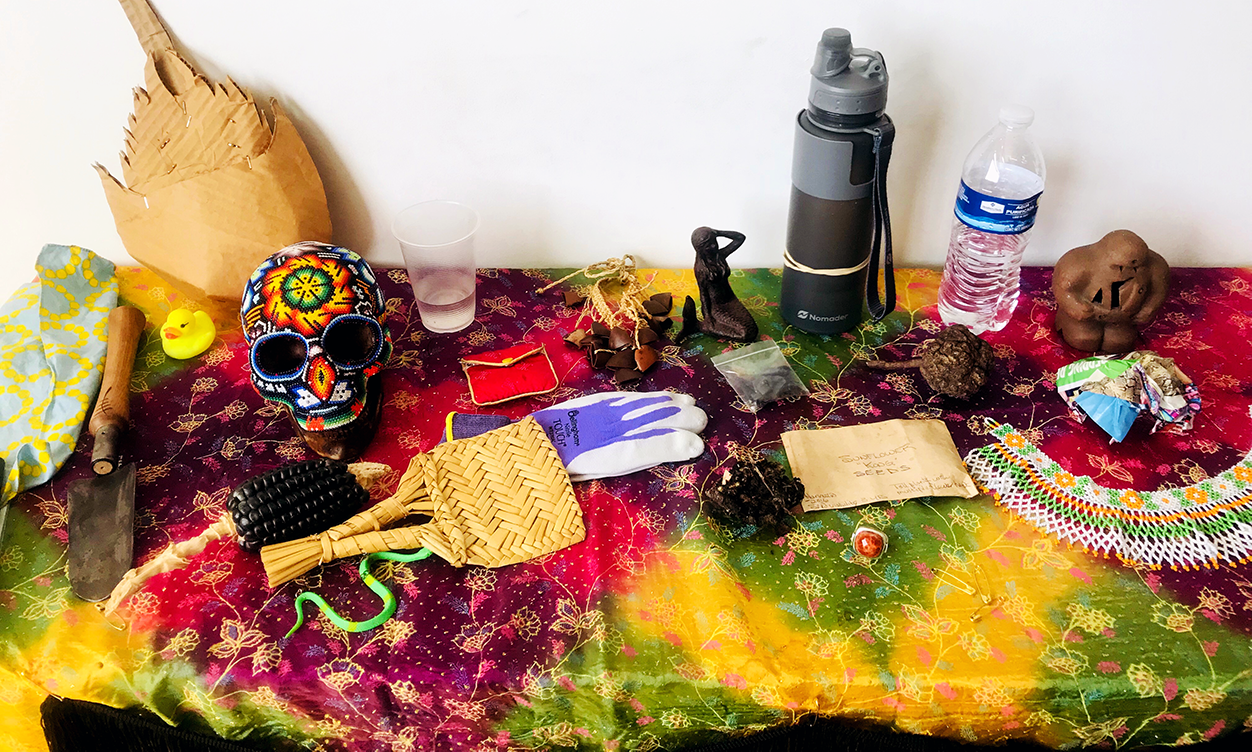
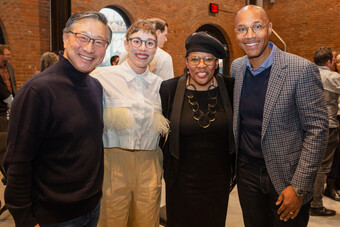

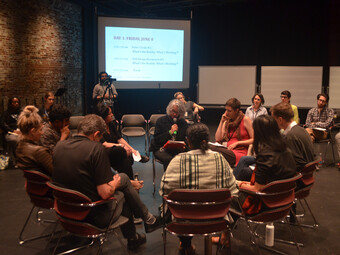

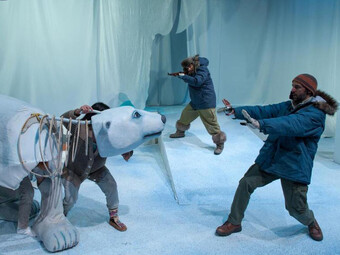


Comments
The article is just the start of the conversation—we want to know what you think about this subject, too! HowlRound is a space for knowledge-sharing, and we welcome spirited, thoughtful, and on-topic dialogue. Find our full comments policy here
Thank you for this wonderful report! It sounds like the gathering was very fruitful and it gives me lots to think about.